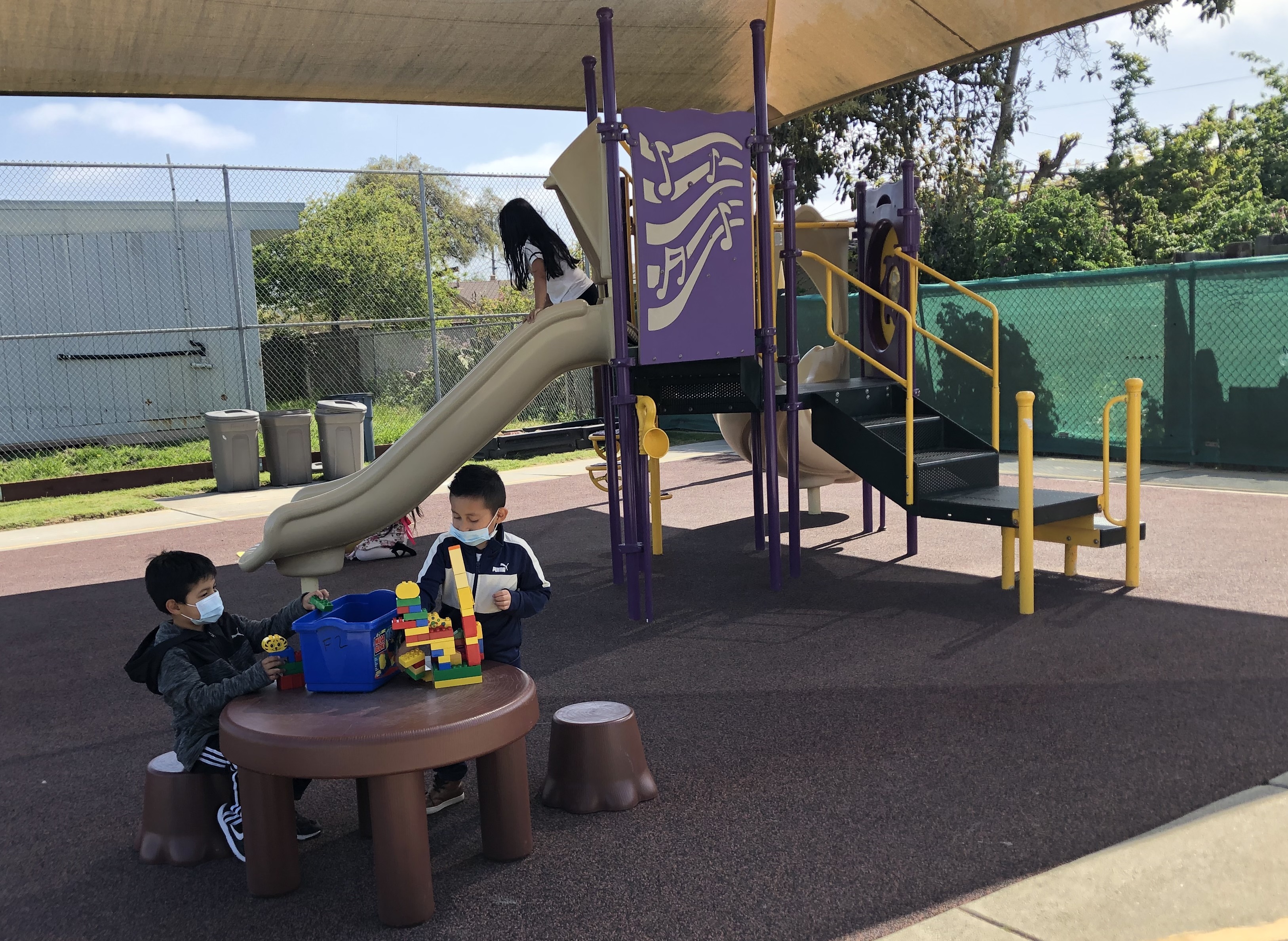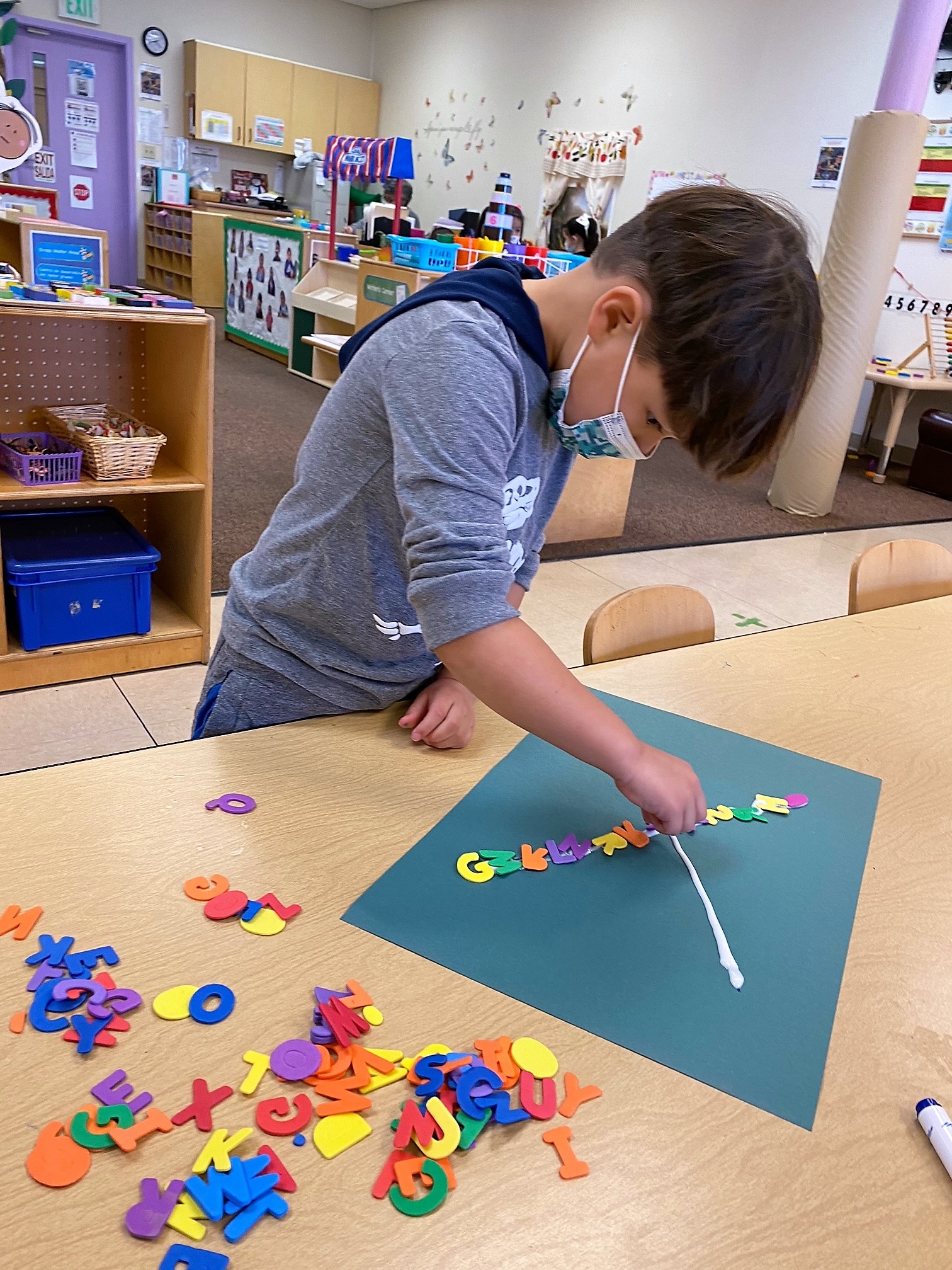March 17, 2022
Hartnell College will address a dire shortage of child care and preschool education by investing a $494,000 state grant in free training and paid apprenticeships for aspiring teachers who face income and language barriers.
The Hartnell Community College District is among 47 community colleges and districts whose apprenticeship proposals have been chosen for three-year funding by the California Apprenticeship Initiative, administered by the California Community College Chancellor’s Office. Hartnell received notice on Feb. 28.
Working with a cross-section of local partners, Hartnell plans to launch two-year early childhood education apprenticeships in August, its first such venture. The aim is also to establish a model for apprenticeship programs in other career fields, such as food safety and transportation. That would support a goal set in 2018 by Gov. Gavin Newsom for California to have 500,000 active apprentices in place by 2029.
This new Early Childhood Pathways/Apprenticeship Program (ECPAP) arrives at a time of critical need for child care workers and early education teachers, who are vital to helping parents return to employment after staying home during the pandemic to care for their children.
“Nobody can go to work if they don’t have a place to send their kids in the morning,”
said Iván Pagan, director of the Hartnell-based Salinas Valley Adult Education Consortium
(SVAEC), “and so early childhood education is kind of a linchpin upon which all the
other industries depend.” 
Hartnell Governing Board President Erica Padilla-Chavez highly commended the work that led to the state grant, citing a need for early childhood education that “we’ve all heard about, because we have family and friends who’ve been dealing with this situation.”
Padilla-Chavez noted that her mother transitioned from agricultural work into migrant youth education after completing her high school equivalency and earning an associate degree in early childhood education at Cabrillo College, ultimately opening her own in-home day care center.
“The reason I and my sisters were able to go to college is because my mother decided to pursue a career in early childhood education,” she said. “I believe it’s a pathway that can absolutely flourish for so many people who are already in it; they just didn’t know they could get a degree.”
2,000 hours of paid apprenticeship work
ECPAP has the capacity to enroll cohort groups of 25 students a year, with an emphasis on serving low-income women of color who have limited English proficiency. No prior experience in early childhood education is required. They must be qualified to work in the United States, but organizers are exploring ways to extend the same opportunities to individuals who lack immigration documents.
Successful participants will be trained, mentored and, most importantly, employed because the apprenticeships are virtually guaranteed to transition into permanent jobs. They also will have the opportunity to complete an Associate of Science Degree for Transfer in Early Childhood Education at Hartnell and then a bachelor’s degree in Human Development & Family Science at Cal State Monterey Bay, along with a teaching credential.
Prospective students interested in learning more about the apprenticeship program can contact Christian Regalado at the SVAEC, (831) 386-7105 and cregalado@hartnell.edu. More information is also available at https://svaec.org/ecepathway/.
Wages remain a challenge at the entry level of early childhood education, which can pay less than $30,000 a year, but the career path can lead to educational and management roles paying more than $100,000.
“One of the essential elements of a pathways program is that it has on ramps and off
ramps,” said Pagan, who compared it to the layered credentials and pay available in
health care. “Students can get off and work for a while and come back and resume their
education.” 
The SVAEC laid a foundation this past fall with a one-year pre-apprenticeship program in which 20 students are taking both an English as a Second Language (ESL) course tailored to early childhood education and a college-credit seminar to prepare them for academic success. Classes are held at Hartnell’s new Soledad Education Center and at the Soledad Adult School.
That initial group of students as well as some incoming students will immediately begin apprenticeships with local early child care providers this coming fall, while also taking classes. Grant funds will pay for student services such as counseling and tutoring, administrative support, employer incentives and technical assistance from supporting agencies.
At the end of three years, ECPAP graduates will have earned three permits for early childhood education – assistant teacher, associate teacher and teacher – and 41 college credits, which is about two-thirds of the way toward the associate degree at Hartnell.
“This is a brand new model that we’re attempting to employ,” Pagan said. “The students are going to get experience from the get-go. From the time they begin their classes at Hartnell next fall, they will begin the apprenticeship.
“They’ll work 1,000 hours in the first year and 1,000 hours in the second year at the same time they are taking classes. They will study part-time and work part-time, and they’ll get paid for those hours.”
‘Amazing opportunity for families’
With the grant in hand, a Joint Apprenticeship Committee of early-childhood employers and educators and community-based organizations will develop such standards as wages and skill-set objectives and seek formal state approval for the apprenticeship plan.
Among the participants will be the Monterey County Office of Education, which contributed $15,000 to the apprenticeship effort, United Way Monterey County, child-development advocacy organizations like Bright Beginnings and First 5 Monterey County and early childhood education providers like Early Development Services in Salinas. The Hartnell College Foundation will also continue to be involved.
One of the initiative’s biggest supporters is Sonia Jaramillo, program director for the MCOE Early Learning Program, which administers the income-qualified Head Start programs for more than 700 children throughout the Salinas Valley, as well as in north Monterey County. She has been involved with planning for the grant-funded initiative from the beginning.
Jaramillo said she knows how difficult it is to hire qualified pre-kindergarten teachers and also how many parents of Head Start children would be eager to join the early childhood education workforce if they could overcome financial and language barriers.
“They’re willing and able to do it, but without the qualifications in place, it’s very difficult for them to enter into any of these positions,” Jaramillo said.
However, by earning money as an apprentice while acquiring the necessary skills and credentials, she said, parents can say, “‘I can get a little bit of a paycheck. I don’t have to starve because I’m going to school.’ This grant is an amazing opportunity for our families.”